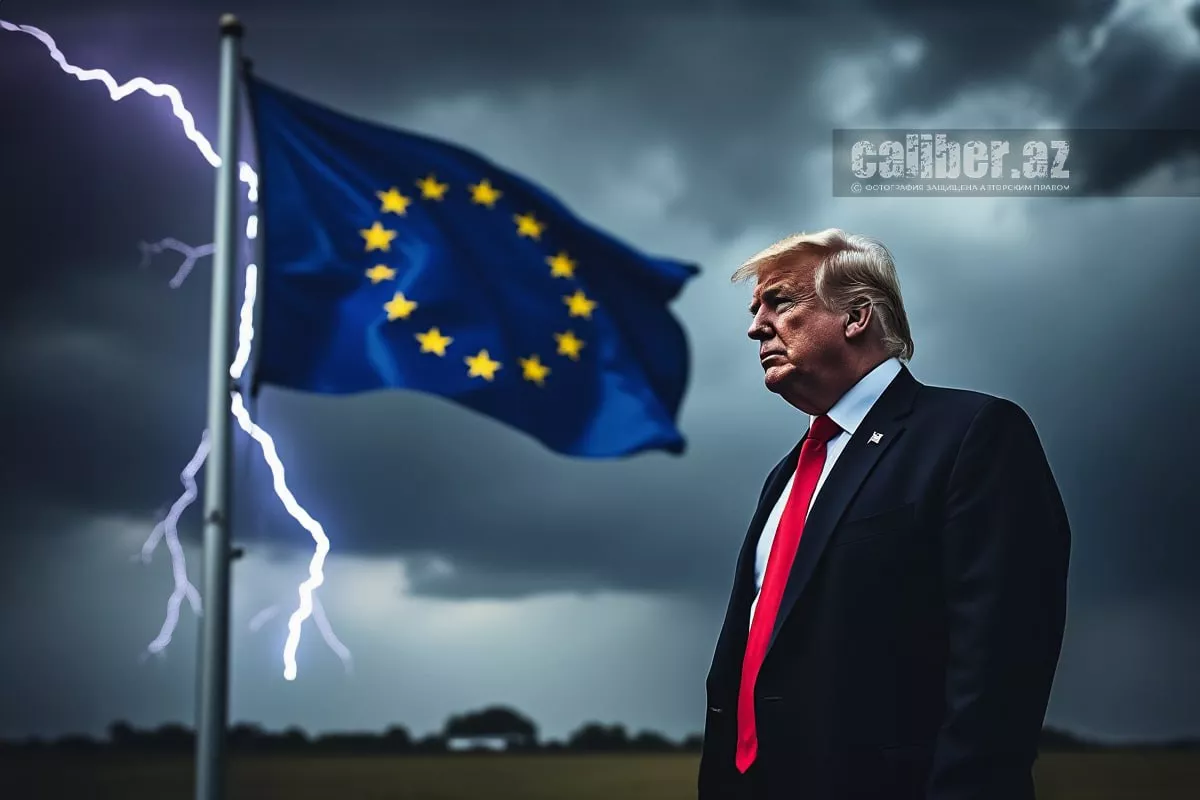From unexpected to inevitable: Understanding Trump's victory Surprise or fate?
Donald Trump has emerged victorious. While sociologists had predicted a closer race, the outcome was hardly a surprise. The conclusion of one of the most intense electoral campaigns in recent memory has arrived. Though the final vote tally is still pending, especially in key swing states, it’s already clear that Trump is on his way back to the White House. This marks a historic achievement: Trump will become only the second person in US history to secure two non-consecutive presidential terms. Even his fiercest critics must acknowledge the magnitude of this feat, particularly given the legal battles and ongoing judicial challenges that have surrounded him.
Republicans astonished
In the final days leading up to the election, pre-election polls, as we previously mentioned, showed a surprising dead heat between the two main contenders — Kamala Harris and Donald Trump. Both candidates enjoyed roughly equal support from voters, both nationally and in the crucial swing states, where the outcome is often unpredictable and shaped by demographic and historical factors. Predicting a clear winner based solely on polling data was a challenge, and the eventual results defied many expectations.

At the same time, we pointed out that this situation should have raised serious concerns for the Democrats. Historically, in recent presidential campaigns, they have always enjoyed significant support across the country. This meant that, even if their candidate ultimately lost, they still often received more total votes nationwide, due to the peculiarities of the US Electoral College system. However, this time the polls indicated that the Democratic candidate was not expected to secure a statistical majority, either. This turned out to be the case. For the first time in his three presidential campaigns, Trump is reportedly winning both the national popular vote and the Electoral College, with the official confirmation of his victory expected soon.
In the context of the available polls and forecasts, Donald Trump's triumph doesn’t seem as surprising as it did in 2016 when Hillary Clinton was predicted to win by a wide margin. This victory is not as stunning as his previous one. If anything is surprising now, it is the landslide victory in favour of the Republican ticket, particularly the swift momentum gained by Trump and his running mate, J.D. Vance, who quickly secured the critical 270 Electoral College votes. The faces of both campaign teams reflected a hint of disbelief, but members of the Republican team emphasized in numerous interviews that, while they were confident of victory, they did not expect it to come so easily and quickly. Few predicted that, just hours after the polls closed, the winner would already be clear.
Sociologists will once again need to investigate why their analytical tools failed to accurately predict the outcome of this election. Why did they once again underestimate the level of support for Donald Trump, even though the margin of error was not as pronounced as in 2016 and 2020? What are the underlying sentiments and emotions among Americans that remain elusive to these analyses, and which social groups are they failing to capture?
As we noted in our previous publication, it’s clear that the familiar factor of “shyness” among Trump supporters in pre-election polls played a significant role. A notable percentage of those who participated in polls misled the pollsters, failing to openly admit their support for the former president over Kamala Harris. It seems that, in today’s American society, it is perceived as safer to align with the Democrats publicly.
Are surprises on the horizon?
Many commentators now assert that with Donald Trump back in the White House, the US is in for a period of continuous surprises and daily unpredictability. Both during his first term and throughout his election campaigns, Trump often exhibited erratic behavior, shifting political priorities and strategies within short time frames. This portrayal has been reinforced by mainstream media, used as a scare tactic by the Democrats, and echoed by former allies from his first administration. Notably, former National Security Advisor John Bolton, who later became a vocal critic of Trump, described the former president in his memoirs as a figure defined by chaos and unpredictability.

It is evident that such public portrayals of Donald Trump are deeply rooted in the ongoing political battle against him and the forces that support him. It is equally clear that the 45th, and now 47th, president of the United States differs in many ways from the typical image of a politician. His approach to negotiations and decision-making, shaped by his background as a successful businessman, often diverges from the established norms of public administration and diplomacy. These differences will inevitably become more apparent in the coming years, despite the experience Trump and his team have accumulated in the political sphere.
However, it is difficult to concur with the idea that Trump's return to the White House will result in an era of constant unpredictability and chaos, while a failed Harris presidency would simply ensure a stable continuation of the Biden administration's policies. In reality, the opposite seems more likely. Here’s why.
It’s safe to say that had Harris won, four years from now, it would have been her administration that people would look back on as surprising. This retrospective shift would likely come from comparing the election slogans and expectations of continuity under the Democrats with the actual shifts in US domestic and foreign policy that are bound to occur. The world is changing at a rapid pace, and it is in Washington’s best interest to adapt in order to maximize the benefits of these changes. This adaptation will likely be more pragmatic than ideological, which distinguishes the approaches of Democrats and Republicans.
For instance, it’s no coincidence that a consensus is emerging within the US regarding how to handle China. While there may be minor differences in approach, both parties broadly recognize the growing geopolitical and geostrategic confrontation with Beijing. Therefore, the differences between the Democratic and Republican strategies on this issue will primarily be in the details, not the overarching direction. Given the fundamental importance of this issue, US policy in other areas will also shift in similar ways, with changes occurring in nuances rather than in revolutionary shifts. This includes Europe, where anxiety is again growing in response to Trump’s victory.

Since the world is already bracing for change under Trump, his presidency is likely to offer fewer unexpected twists and turns than if Kamala Harris had taken the helm of the White House. While there will certainly be surprises during the Trump-Vance administration, the nature of these changes will feel less abrupt. On the other hand, if Harris had won, the surprise factor would likely have been more pronounced, and the psychological impact of those surprises would have been more jarring for many. The unpredictability of a Harris presidency, given her lack of a clear leadership track record, could have created a greater sense of uncertainty and shock on the global stage.
A new chapter in American history
In light of the recent developments, it is clear that the United States is entering a new chapter in its political history. This shift is not only tied to the inevitable changes unfolding across the globe, but also to the influence of Donald Trump on American domestic politics. Over the past several years, it has been widely suggested that Trump has reshaped the Republican Party in ways that make it almost unrecognizable. And indeed, he has. His second victory could well lead to similarly profound changes within the Democratic Party, and by extension, the entire political landscape of the nation.
When Trump first won in 2016, many viewed it as an anomaly, a departure from the norm. This narrative became central to the Democratic Party's approach in the years that followed. After Joe Biden's victory in 2020, the prevailing story was that the country had overcome the “Trump aberration” and returned to a more stable and familiar path. In this year's election campaign, Democrats attempted to persuade the American public that this course needed to be preserved, arguing that they must retain the White House to safeguard the country's future.
However, this did not happen. Not only did Trump secure more than the necessary 270 votes in the Electoral College, ensuring another presidential term, but in a significant turn of events, he is also on track to win the popular vote for the first time in his three campaigns. Perhaps even more significant is the complete control the Republican Party will now hold over both the executive and legislative branches of government. In addition to the presidential race, the results of the Senate by-elections revealed that the Democrats have lost their majority there as well. The Republicans also hold a strong advantage in the House of Representatives.
This new political reality forces the Democratic Party to rethink its approach and find ways to reestablish itself in the eyes of the American public. It’s hard to interpret these results in any other way than as a clear signal from the electorate that something is fundamentally wrong with the Democratic Party’s previously dominant narrative. This means that simply returning to the status quo will not be enough in future elections. Instead, the Democrats must engage in a deep and honest reflection on what went wrong and when. Only through this process of introspection will meaningful changes be able to take shape in American politics.








